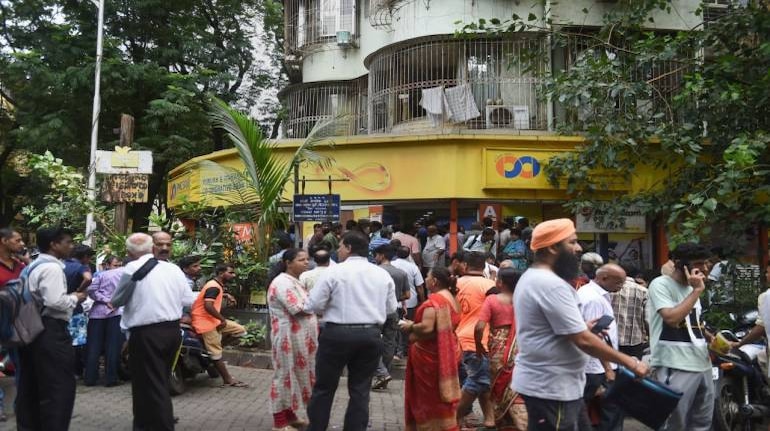



NBFCs are not the weakest link in the financial system. Cooperative banks are its smelly underbelly. The Reserve Bank of India’s sanctions on Punjab and Maharashtra Cooperative (PMC) Bank brings to the forefront the key problems with such lenders. It also raises questions about the regulator’s supervision of cooperative lenders.
Urban cooperative banks failures occur with alarming regularity. Their number fell from 1926 in March 2004 to 1551 in March 2018, according to RBI data. During this period, the central bank forced through 129 merges of cooperative banks too. At the end of March 2017, cooperative banks accounted for only 11 per cent of the total assets of scheduled commercial banks (SCBs).
RBI’s tersely worded press release did not specify why it imposed sanctions on PMC Bank but various news reports said that the bank had apparently given some fraudulent loans and also not disclosed the true state of its bad loans.
What’s shocking in this instance is that PMC Bank was supposedly one of the better-run cooperative lenders in the country. According to its latest annual report, it had close to Rs 11,600 crore in deposits and Rs 8,400 crore advances, making it one of the largest cooperative banks. What’s even more shocking is that other news reports said that the bank voluntarily approached the regulator asking it to initiate action. So, was RBI sleeping at the wheel?
One reasons why cooperative banks fail so often is their small capital base – for example, urban cooperative banks can start with a capital base of Rs 25 lakh compared to Rs 100 crore for small finance banks. The second is such banks are hijacked by vested political interests. This could mean appointing political lackeys as senior bank officials, embezzlements, fraudulent loans given which are later written off, forcing government employees to hold salary accounts with cooperative banks and so on. As Vidyadhar Anaskar, the chairman of the board of administrators of MSC Bank and the chairman of the Maharashtra Urban Cooperative Banks Federation summed it up in a recent interview: “Staff recruitment happens to be the Achilles’ heel of cooperative banks.”
RBI’s supervision of cooperative banks is not as stringent as that of commercial banks. Typically, the state government audits cooperative banks while RBI inspects their books once a year. The central banks also does not have powers to supersede the board, remove directors etc. But while that is the case with the majority of cooperative banks, RBI did have the powers to do so in the case of PMC which is a multi-state bank.
Lax supervision – whether it is RBI’s fault or because the system (joint supervision) is structured this way – ultimately ends up hurting depositors. The central bank mistrusts cooperative banks so much that during demonetisation it barred district cooperative banks from accepting or exchanging the withdrawn Rs 500 and Rs 1000 notes. In the case of PMC, RBI has capped deposit withdrawals at Rs 1000 per customer till it gets clarity on the mess.
Unlike commercial banks, which have not been allowed to fail for the past few decades because RBI typically forces through a merger or state-run banks which have an implicit sovereign guarantees, cooperative banks have no such back-up. In the last twenty or so years, the Deposit Insurance and Credit Guarantee Corporation of India (DICGC) has had to settle deposit insurance claims of only cooperative banks. Since each depositor is insured only up to Rs 1 lakh, people who had higher amount of deposits have had to take massive haircuts when cooperative banks were wound up and liquidated.
This leads us to the question whether cooperative banks are required at all? It is important to note that cooperative banks were set up to allow ease of access to credit and ensure financial inclusion. Shutting down or merging such banks is an easy but lazy option. After all, India is still an underbanked country.
What needs to done is a system overhaul. RBI need not look far. A committee it had set up under former deputy governor R Gandhi had a few suggestions on the way forward for urban cooperative banks. While some measures such as setting up an umbrella organisation for cooperative banks and instituting a board of management (apart from the board of directors) are taking shape, three suggestions are worth noting in particular.
One, the committee has said that section 56 of the Banking Regulation Act should be amended to give RBI more powers over cooperative banks. Second, it said that there is a need to empower RBI for implementing resolution techniques including winding up and liquidating banks without involving other regulators under the cooperative societies’ laws. These two suggestions may not be easy to implement politically.
Three, the committee suggested that urban cooperative banks voluntarily wanting to convert into small finance banks should be allowed to do so if they fulfil the central bank’s criteria. RBI should act on this and perhaps mandatorily convert systemically important urban cooperative banks into small finance banks.
Discover the latest Business News, Sensex, and Nifty updates. Obtain Personal Finance insights, tax queries, and expert opinions on Moneycontrol or download the Moneycontrol App to stay updated!
Find the best of Al News in one place, specially curated for you every weekend.
Stay on top of the latest tech trends and biggest startup news.